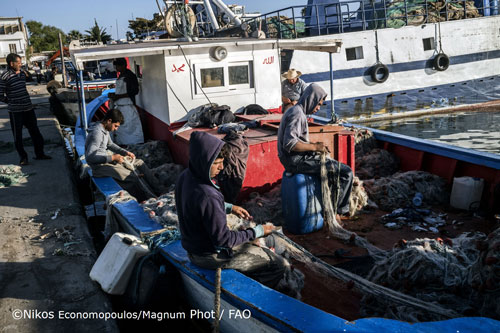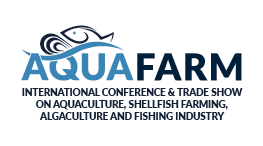 The General Fisheries Commission for the Mediterranean (GFCM) is launching a university devoted to small-scale fisheries (SSF). The SSF University will offer free workshops and training courses to small-scale fishers and fish workers across the Mediterranean and Black Sea region. Small-scale fishers represent 84 percent of the total regional fishing fleet and 60% of total onboard jobs. Yet despite the important role of SSF in the region, small-scale fishers often fail to be engaged in the decision-making processes. The governments of the region recognized the need to promote their access to financial resources, and facilitate education and training opportunities. To respond to these challenges, the GFCM has teamed up with the World Wide Fund for Nature, the Low Impact Fishers of Europe, the European Network of Women in Fisheries and Aquaculture, Petra Patrimonia, and LOQUS, as well as relevant FAO projects and sub regional and country offices, to offer a wide variety of courses on topics such as ecosystem friendly gears, fishing tourism, the legislative basis for SSF governance, starting a fisher association, etc. In 2020, fifteen courses are foreseen to take place in more than 11 countries, targeting representatives of SSF organizations, fishers and fish workers active in the sector.
The General Fisheries Commission for the Mediterranean (GFCM) is launching a university devoted to small-scale fisheries (SSF). The SSF University will offer free workshops and training courses to small-scale fishers and fish workers across the Mediterranean and Black Sea region. Small-scale fishers represent 84 percent of the total regional fishing fleet and 60% of total onboard jobs. Yet despite the important role of SSF in the region, small-scale fishers often fail to be engaged in the decision-making processes. The governments of the region recognized the need to promote their access to financial resources, and facilitate education and training opportunities. To respond to these challenges, the GFCM has teamed up with the World Wide Fund for Nature, the Low Impact Fishers of Europe, the European Network of Women in Fisheries and Aquaculture, Petra Patrimonia, and LOQUS, as well as relevant FAO projects and sub regional and country offices, to offer a wide variety of courses on topics such as ecosystem friendly gears, fishing tourism, the legislative basis for SSF governance, starting a fisher association, etc. In 2020, fifteen courses are foreseen to take place in more than 11 countries, targeting representatives of SSF organizations, fishers and fish workers active in the sector.
The European Network of Women in Fisheries and Aquaculture (AKTEA) organizes the first course of the SSF University in Brussels. It focuses on how to make a difference in the legislative and policymaking processes of European institutions and includes a visit to the European Parliament Fisheries Committee and meetings with European lawmakers. The SSF University responds to one of the key recommendations of the Regional Plan of Action for Small-Scale Fisheries in the Mediterranean and the Black Sea (RPOA-SSF) adopted by 18 Mediterranean and Black Sea countries as well as the European Union in 2018, by promoting capacity development in the small-scale fisheries sector.








